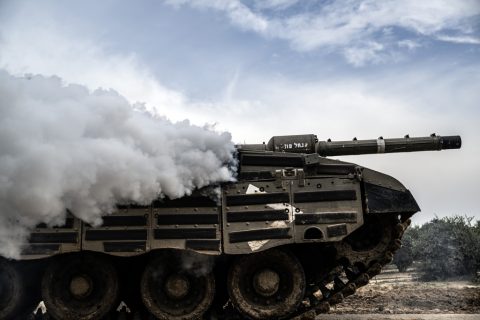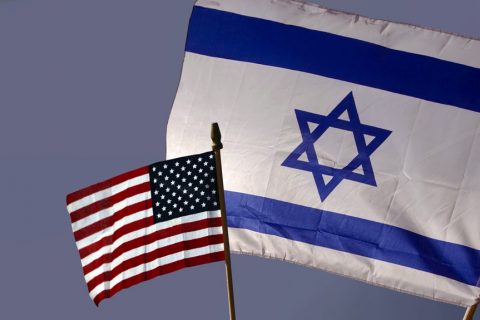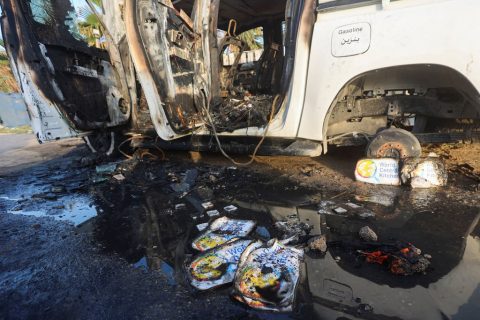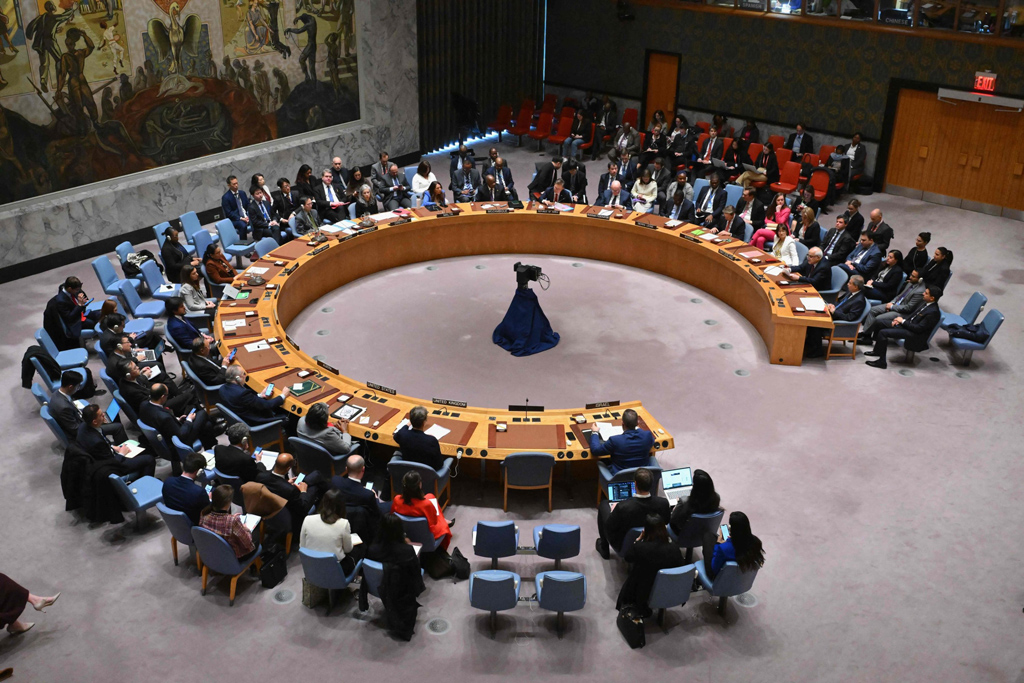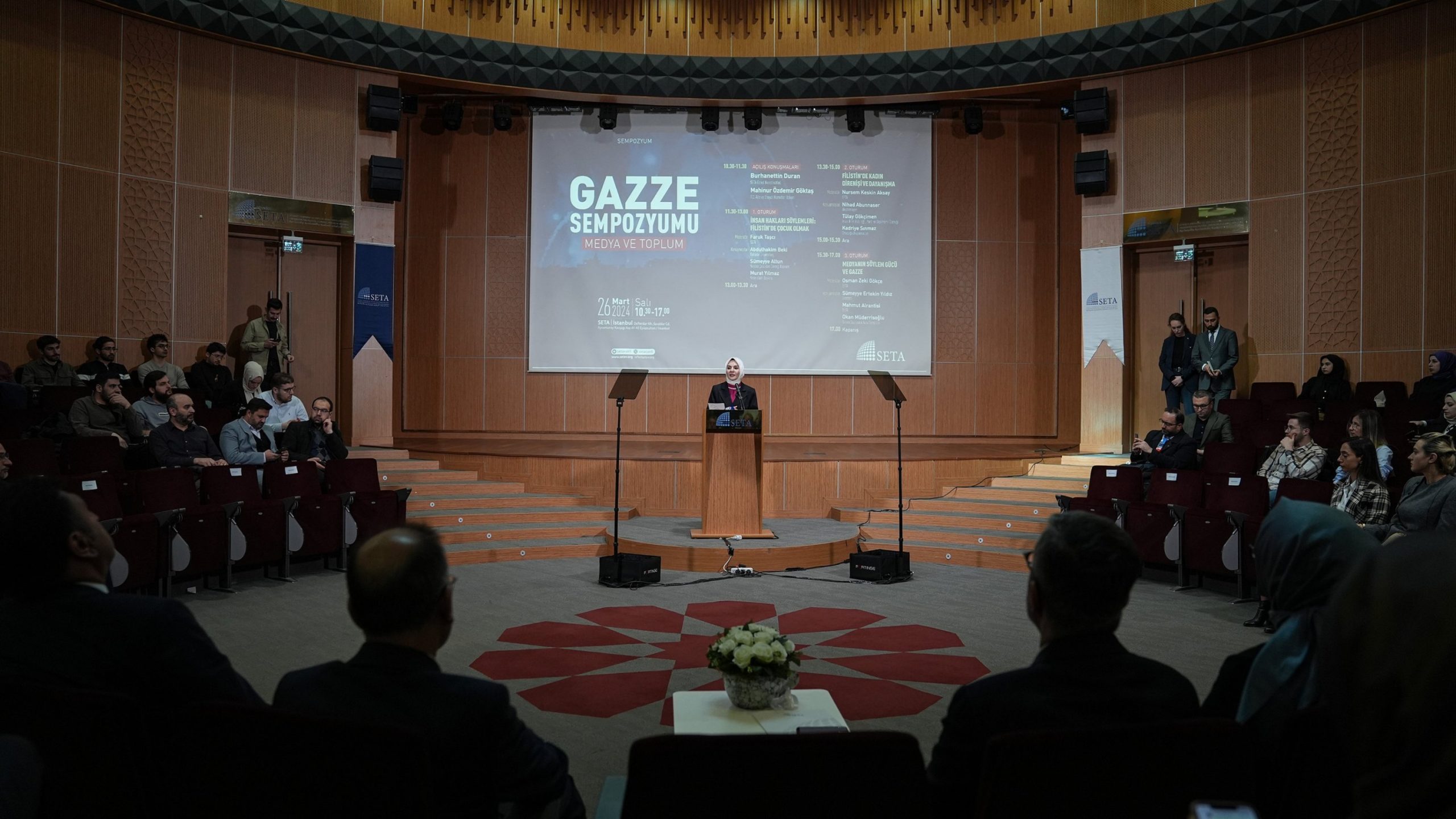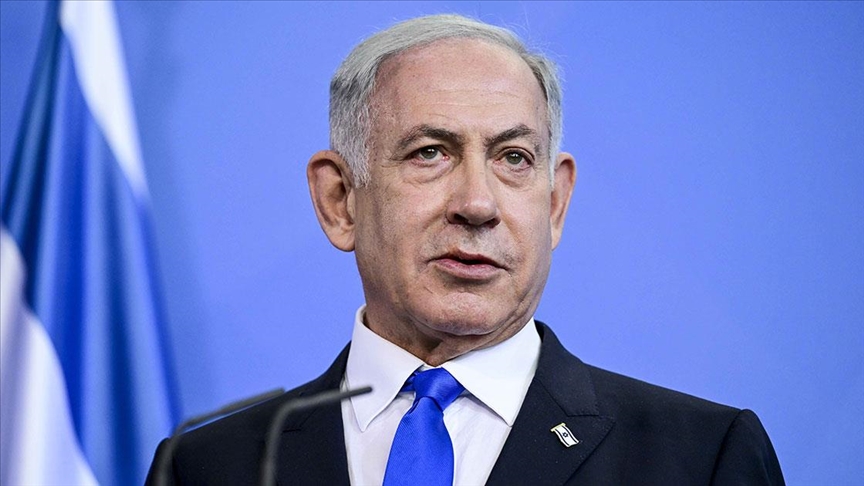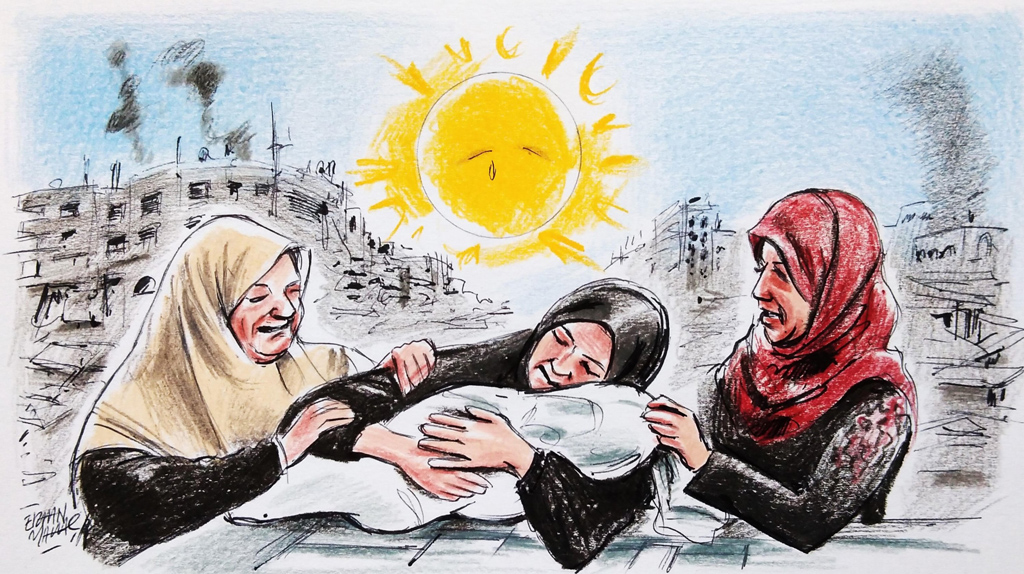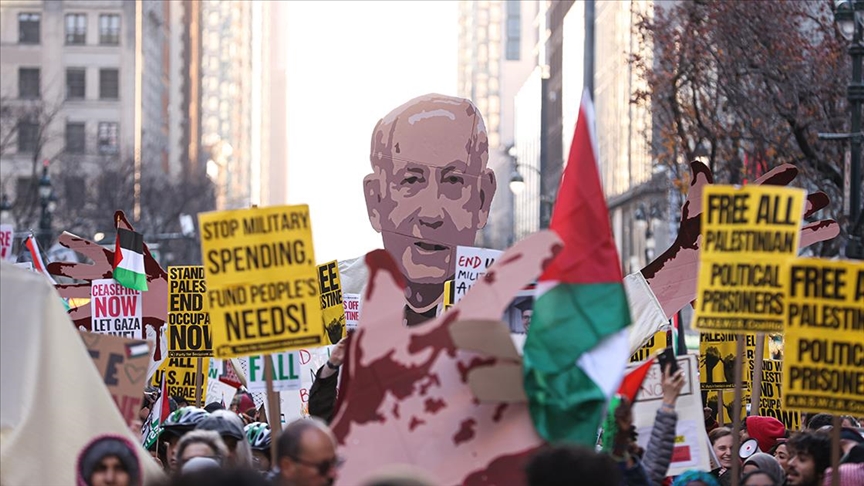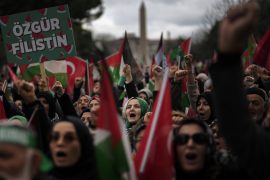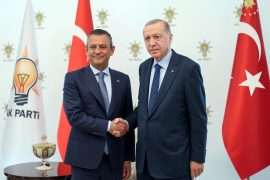Israeli War Crimes

Diplomatic push for peace: Türkiye’s efforts in Gaza
| OpinionSince the early days of the post-Oct. 7 period, Türkiye has been insistently trying to …
-
Opinion
Hamas’ acceptance of ceasefire and Israel’s Rafah operation
By Kadir ÜstünDespite Hamas announcing its acceptance of the ceasefire on Monday, Israel stated that the agreement did not meet their desired level. However, they announced that they would send a delegation to Doha for negotiations. Additionally, they indicated that the Rafah operation would proceed as planned, showing no intention to heed Washington's demands. Despite CIA Director Bill Burns being in the region for the Doha talks and the Biden administration's clear opposition to the Rafah operation, the Netanyahu government shows no signs of backing down. Reports of the Biden administration halting arms shipments to Israel, thus delaying Netanyahu's Rafah operation, had made Hamas' acceptance of the ceasefire a critical turning point. However, Netanyahu's efforts to both continue and expand the conflict from the outset pose the biggest obstacle to ceasefire efforts.
-
Opinion
The ‘tragedy’ of US policy vis-a-vis Israel
By Kadir ÜstünThe Biden administration seems to have at least temporarily succeeded in preventing Iran's direct attack on Israel from escalating into an uncontrolled war. The White House conveyed the message to Israel through various channels that any attack on Iran should be 'proportional,' also signaling to the Netanyahu government that US support for Israel would be limited to defense. With the assistance of the United States, the United Kingdom, and Jordan, Iran's UAVs and missiles were intercepted before reaching Israeli airspace, making the job of the Iron Dome relatively easier. However, Iran's low-intensity and controlled attack with low-cost weapons demonstrated that in a more 'real' war, Israel's task would be far from easy. The attack, which brought the urgency of Israel's defense to the forefront, seems to pave the way for a vote on a long-delayed aid package for Israel, Ukraine, and Taiwan in the House of Representatives. The fact that American foreign aid could reach the approval stage thanks to the attack on Israel indicates how much the issues that bring Republicans and Democrats together have decreased.
-
Opinion
Israel’s 2 grave mistakes that put its Western allies in hot water
By Muhittin AtamanThe latest developments in Gaza have forced many states to reconsider their policies toward Israel’s genocidal attacks, the suffering of the people of Gaza and the resistance of the Gazan people, which will continue to shape not only regional but also global politics.
Bu Konuda Daha Fazla
-
Will Israel implement the UNSC Gaza cease-fire resolution?
By Muhittin AtamanThe United Nations Security Council (UNSC) has passed a resolution demanding an immediate cease-fire in Gaza for the month of Ramadan. The 14 members council members voted in favor of the resolution, which was proposed by the 10 elected members of the council. Only the United States abstained from the vote. After the vote, there was an unusual round of applause in the council chamber, showing how much the international community wants the bloodshed to end.
-
SETA symposium in Istanbul highlights Gaza crisis
By SETAThe Foundation for Political, Economic and Social Research (SETA) hosted the "Gaza Symposium: Media and Society" in Istanbul.
-
The Netanyahu predicament among Israel’s allies in Washington
By Kadir ÜstünIn 2015, Netanyahu came to Washington to dynamite Obama's deal with Iran and made a speech in Congress. Obama was trying to delay Congress's new sanctions to make a nuclear deal with Iran. Netanyahu accepted the invitation of Republicans in the House of Representatives and did not coordinate his visit with Obama's White House. Netanyahu's speech at the session, attended by both wings of Congress, was repeatedly applauded. Netanyahu, who tried to end Obama's nuclear talks with Iran by imposing sanctions on Iran by Republicans and some Democrats in Congress, failed. Vice President Biden, who sat behind Netanyahu during his speech to Congress, seems to be facing a similar Netanyahu problem these days.
-
Ramadan, Gaza and anti-Islam sentiment
By Burhanettin DuranFriday marked the fifth day of Ramadan. Unfortunately, there is still no cease-fire in Gaza, and Israel continues to kill Palestinians waiting for food supplies. Earlier this week, Israeli troops killed six Palestinians and injured 83 others as they waited in line to receive a bag of flour. That was not the first time, and it won’t be the last.
-
What does the Biden-Netanyahu spat signify?
By Burhanettin DuranU.S. President Joe Biden recently said that they are working on a six-week emergency cease-fire, describing Rafah as a red line. Yet Israeli Prime Minister Benjamin Netanyahu reiterated his commitment to conduct military operations in that area. The Israeli army perpetrating atrocities in Rafah, where 1.4 million Palestinians have been starving during Ramadan, would be a new source of shame for the world and the Muslim community. Since the U.S. exerts greater influence over Israel than any other nation, one cannot help but keep an eye on the Biden administration's (in)action.
